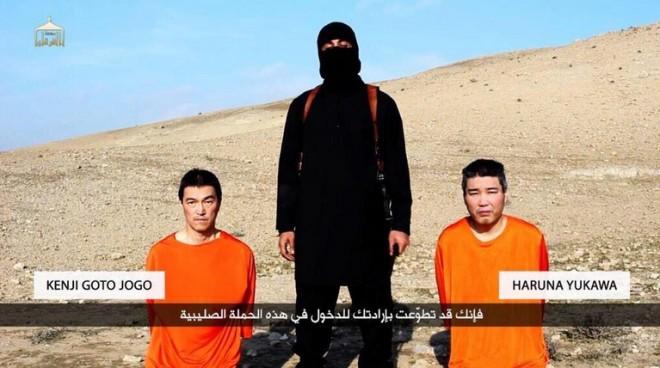
One of the reasons behind the Japanese government's failure to negotiate with the Islamic State captors of its citizens Kenji Goto and Haruna Yukawa has been identified as the internal leadership struggle within the Syrian and Iraqi factions of the terror group, which left Tokyo grappling with different demands.
Both Goto and Yukawa are believed to have been beheaded after Japan and its ally Jordan failed to strike a deal with the terror group, which had earlier demanded a $200 million ransom and later asked for the release of Al Qaeda bomber Sajida al-Rishawi.
The Shinzo Abe administration has reportedly received foreign intelligence that a leadership struggle had ensured within the Islamic State over the Japanese hostages, sources told The Japan Times.
It was the Syrian ISIS faction that had kidnapped the two Japanese men, and had posted the first video threatening to behead them if Japan failed to pay the ransom amount.
However, when Japan refused to heed to the threat, the Iraqi faction then took over and is thought to have sent out the voice message on 24 January demanding the release of Rishawi from Jordan. This faction had left out the ransom demand as was made earlier.
However, Japan and Jordan reached a deadlock over the hostage crisis as the latter was firm on receiving proof that its pilot captured by the group was alive before it swapped al-Rishawi for Goto.
Only the Iraqi faction reportedly offered such a prisoner swap, putting both Japan and Jordan in a diplomatic crisis.
When this demand too seemed to fall through, the Syrian faction appeared to have taken control of the hostage situation once again, and it was their group that is said to have put out the last video purporting to show the execution of Goto.
The sources who spoke to the Japanese newspaper also highlighted the difference in the quality of the video and audio messages to claim that they came from different factions within the Islamic State.
The audio message showing a still photo of Goto with a picture of a beheaded Yukawa was said to be of a poorer quality and is believed to have been sent out by the Iraqi faction.
However, the first and the last videos were said to be released by the Syrian group, made with a better quality.
Thus, the two separate demands that the Islamic State threw up during the ten-day long hostage crisis and the different nature of messages is said to have made it difficult for the Japanese government to secure a clear way to rescue its citizens.
While Jordan is believed to have established indirect contact with the Islamic State through tribal groups, it did not receive any inputs on the fate of Jordanian pilot Muath Kasasbeh, who was captured by the terrorists in December.














